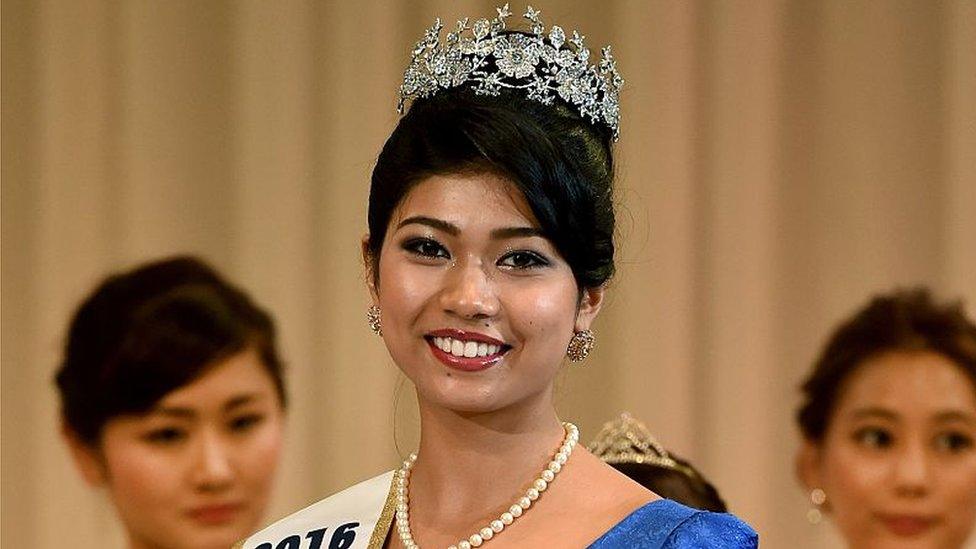Naomi Osaka: Noodle company apologises for 'white-washing'
- Published
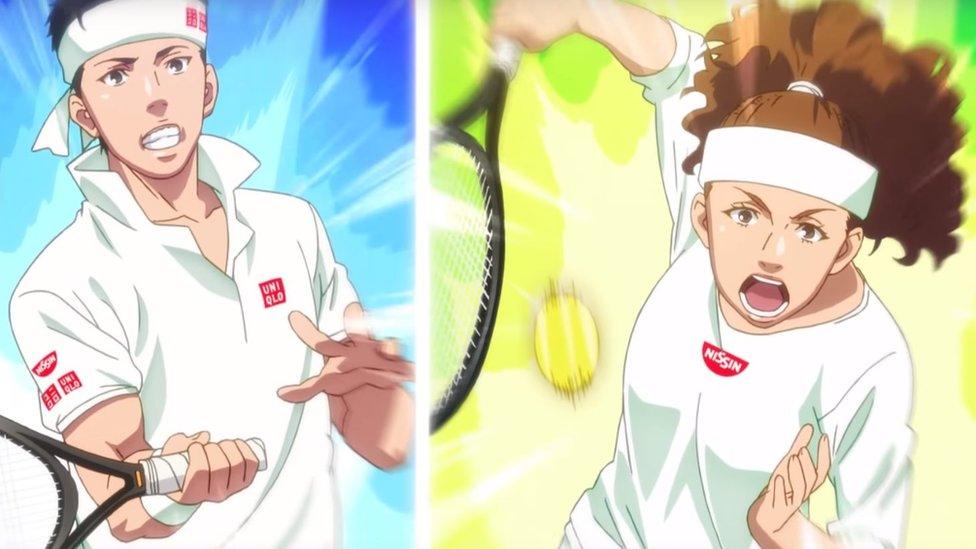
A manga version of Naomi Osaka (right) appeared alongside fellow player Kei Nishikori
The headlines should all have been all about Naomi Osaka's victories on the tennis courts in Melbourne, Australia.
Instead, the Haitian-Japanese sports star has once again found the coverage diverted by a row over a cartoon.
This time, it is Japanese noodle company Nissin which has been accused of "whitewashing" the mixed-race Osaka in a manga drawing.
Many people have been left questioning how exactly this could happen a second time. When an Australian cartoonist depicted Osaka as a blonde-haired, white-skinned woman in September 2018, the controversy took weeks to die down.
"Why, does [anyone] change the skin colour to something that deviates from the real person so much?" one Twitter user asked the manga artist, Takeshi Konomi, after he shared a picture of his drawing on the social networking site.
The company, which sponsors the Japanese tennis team, apologised as the row escalated, saying it had meant no offence.
"There is no intention of whitewashing," a Nissin spokesperson said. "We accept that we are not sensitive enough and will pay more attention to diversity issues in the future."
Osaka, for her part, has not commented on the issue - no doubt more worried about her upcoming semi-final against Czech player Karolina Pliskova, which she later won.
But the row has once again cast a light on the issue of race and discrimination in Japan.
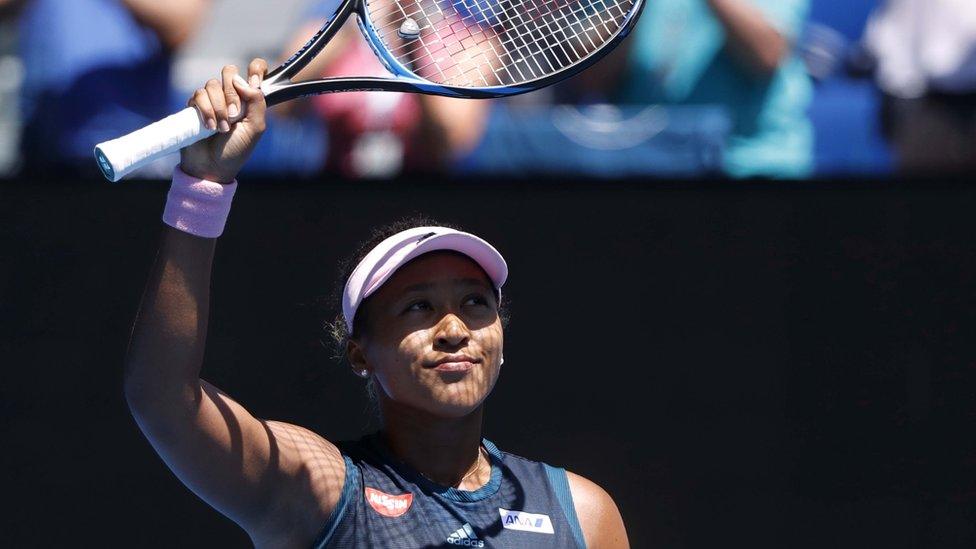
Osaka is currently ranked number four in the world
Japan is a country which is - even now - extremely homogenous. The issue of race and racism, therefore, is perhaps not as obvious to people on a daily basis.
But it has been pointed out repeatedly - not least by the UN special rapporteur Doudou Diene back in 2005, who warned the Japanese government it faced a "deep and profound" problem which needed to be dealt with.
Today, attitudes - and the country's homogeneity - are changing. About one in every 50 babies born in Japan are mixed race like Osaka, who was mainly raised in the US but born in the city of Osaka.
Yet even with stars like 21-year-old Osaka - not to mention the sprinter Asuka Cambridge, baseball player Yu Darvish and judo star Mashu Baker - the "hafu" still face prejudice. "Hafu" is the Japanese word for mixed race.
When Ariana Miyamoto, whose mother is Japanese and father African-American, won Miss Universe Japan in 2015 some questioned is it was "ok" to select someone who is "hafu" to represent the country.
At the time, she took heart from the numbers of people supporting her. But, she revealed to the BBC, her closest school friend had killed himself due, in part, to the isolation he felt growing up mixed race in Japan.
As Katie Sachiko Scott, who is mixed race, noted to the South China Morning Post: , external "Only when we are great are we acknowledged and recognised for being Japanese".
The level of discrimination you face can also depend on where your non-Japanese side comes from, Baye McNeil, an African-American who has lived in Japan for almost 15 years, points out.
Those who do not look too different - either half-Chinese or half-Korean - are unlikely to experience much prejudice. Someone whose parents, for example, might be from West Africa - and consequently has darker skin - is more likely to be picked out for their appearance.
So is this why the advert appeared to choose to downplay Osaka's Haitian heritage by presenting her with paler skin and European features? Possibly not.
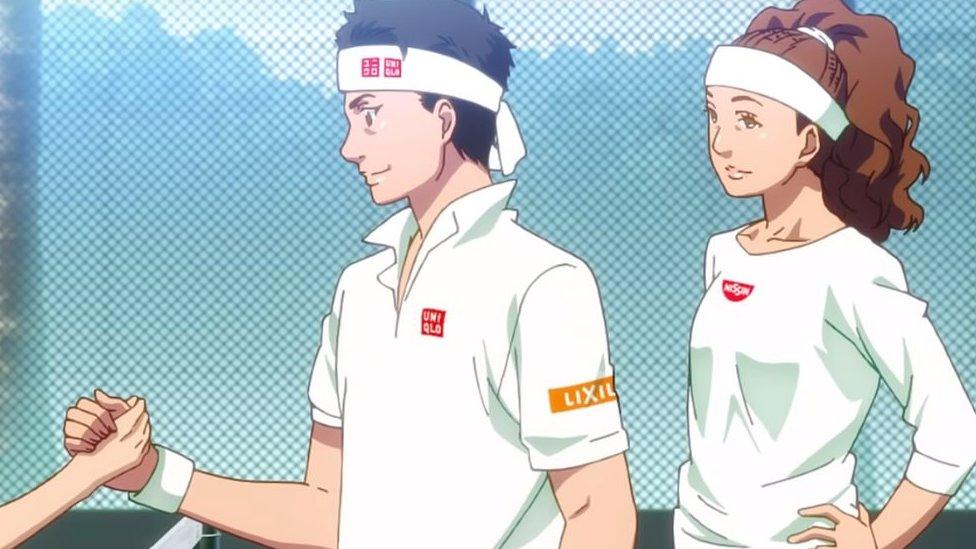
People have accused the company of making her look European
"A lot of the anime here, we would say the characters have a western look. That is the style," McNeil explains.
"However, when people are of African descent are in anime, they are not drawn like that. This is the first time I have seen someone who who is clearly brown depicted like this."
What's more, he points out, most of the characters who appear in the hugely popular books and television series are entirely fictional. Osaka, on the other hand, is a "real person".
But there are signs that attitudes towards race are changing in Japan.
When Indian-Japanese beauty queen Priyanka Yoshikawa took the crown from Miyamoto, the questions over her race had all but stopped. And companies like Nissin appear to be learning from their mistakes. An influx of tourists - combined with events like the Olympics and Rugby World Cup - means this once isolated country is finding itself a little less so ever day.
It gives McNeil hope.
"There is no activism, but it is getting more difficult to ignore," he said.
- Published9 September 2018
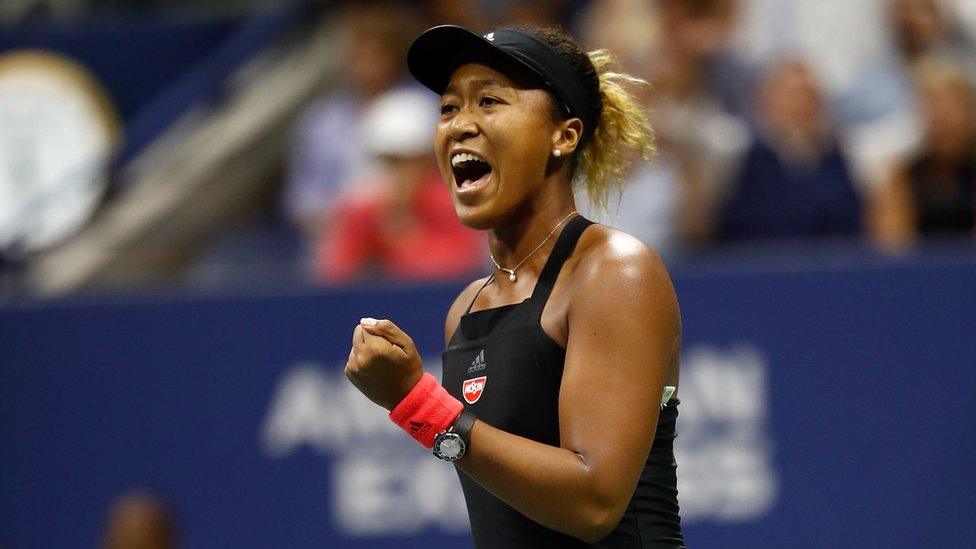
- Published4 June 2015
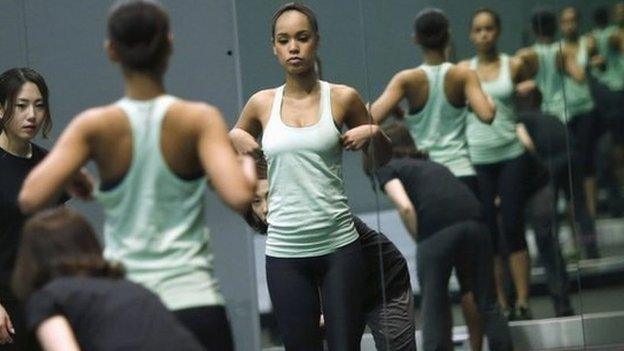
- Published11 September 2018
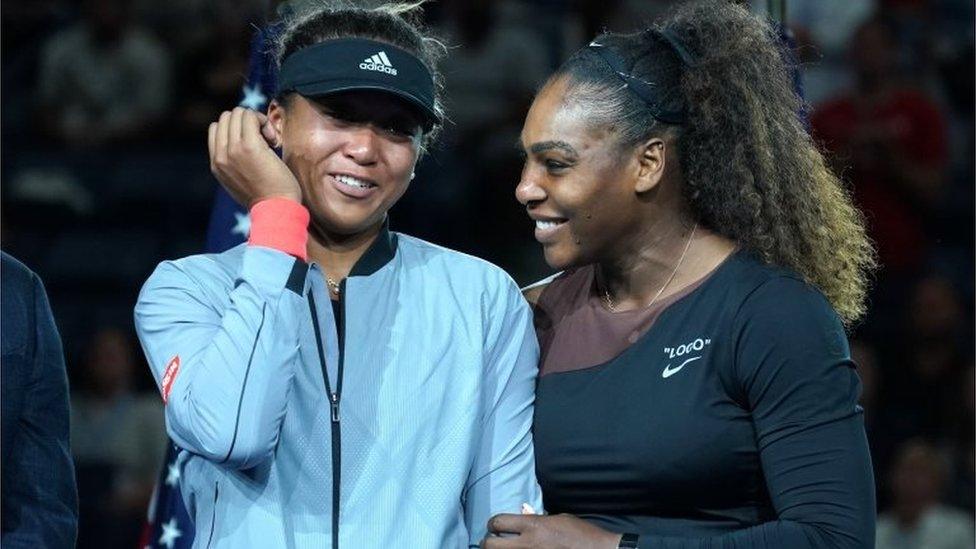
- Published11 September 2018
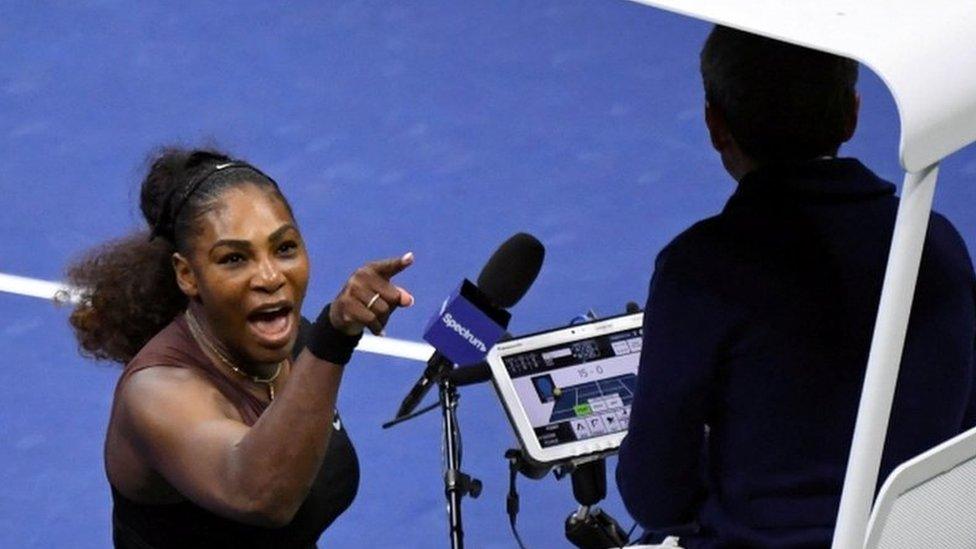
- Published8 September 2016
